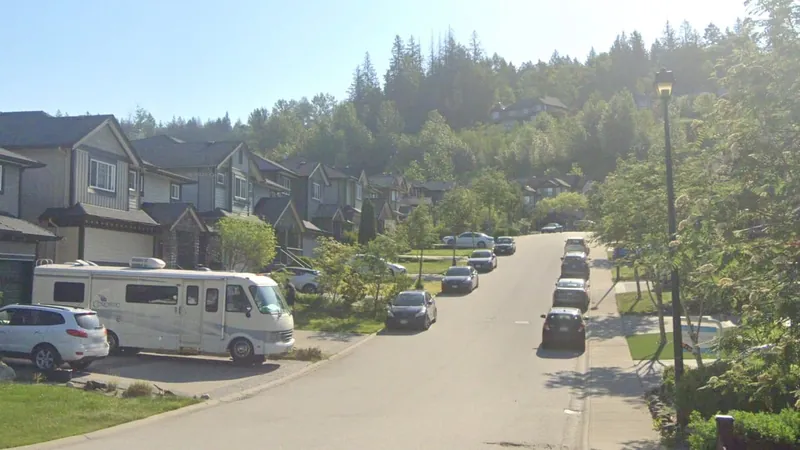
Majority of British Columbians Back Push for Reduced Speed Limits in Residential Areas
2024-12-26
Author: Amelia
Poll Results Reveal Public Support
A recent poll conducted by Research Co. reveals a significant trend among British Columbians advocating for lower speed limits on residential streets, with 63% supporting a decrease from 50 km/h to 30 km/h. This reflects a 2% increase in favor since a similar survey conducted in November 2022.
Concerns About Speeding
The issue of speeding vehicles in residential areas has been a growing concern. Alarmingly, 40% of residents reported observing vehicles perceived to be exceeding the speed limit at least once a day, while an additional 30% noted similar occurrences a few times each week. This alarming frequency highlights the urgency for measures to enhance safety in neighborhoods.
Support for Automated Speed Enforcement
In addition to lowering speed limits, the polling results indicated robust support for automated speed enforcement, with over 70% of respondents deeming it necessary. Among the preferred methods identified were speed-on-green cameras, which capture speeding vehicles at traffic signals, red light cameras that also enforce speed limits at intersections, and fixed speed cameras that monitor speed at specific locations. There’s also increasing interest in point-to-point enforcement systems that calculate average speed over longer distances.
Widespread Backing Across Demographics
Research Co. President Mario Canseco noted, 'The popularity of speed-on-green cameras remains high among residents across all age groups, with a consistent 72% approval from those aged 18 to over 55.'
Collective Agreement on Safety Measures
The backing for these enforcement measures spans political affiliations, indicating a collective agreement on the need for safer streets.
Looking Forward
As discussions about road safety intensify, it remains to be seen how city officials will respond to this public sentiment, but the statistics clearly showcase a demand for action. Could this be the pivotal moment for British Columbia to transform its residential streets into safer zones? Stay tuned as the debate unfolds!









 Brasil (PT)
Brasil (PT)
 Canada (EN)
Canada (EN)
 Chile (ES)
Chile (ES)
 España (ES)
España (ES)
 France (FR)
France (FR)
 Hong Kong (EN)
Hong Kong (EN)
 Italia (IT)
Italia (IT)
 日本 (JA)
日本 (JA)
 Magyarország (HU)
Magyarország (HU)
 Norge (NO)
Norge (NO)
 Polska (PL)
Polska (PL)
 Schweiz (DE)
Schweiz (DE)
 Singapore (EN)
Singapore (EN)
 Sverige (SV)
Sverige (SV)
 Suomi (FI)
Suomi (FI)
 Türkiye (TR)
Türkiye (TR)